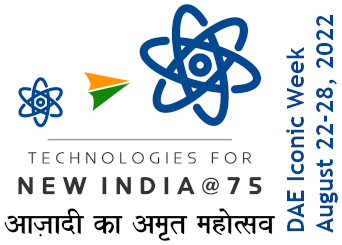Reprogramming the epigenome to prevent Breast Cancer Metastasis
A recent exciting finding from our laboratory has shown that the loss of a Plant Homeodomain (PHD) finger protein, UBR7 alters the epigenome of the normal breast cells, rendering them tumorigenic, by virtue of its catalytic function. Here we show a unique function of PHD finger in enzymatic catalysis of histone H2B apart from its canonical function as a chromatin reader. Interestingly UBR7 is lost in “Triple-Negative” Breast cancer that has enhanced rate of metastasis. The protein was identified from an intensive search of factors that get downregulated in breast cancer. Interestingly, it was observed that while its expression was quite high in other types of breast cancer, “Triple-Negative” forms show high downregulation. Thus restoration of this factor was hypothesised to combat cancer.

Figure 1: UBR7 monoubiquitinates histone H2B at lysine 120 and is downregulated in metastatic tumors. a. UBR7 PHD monoubiquitinates histone H2B at lysine 120. b, c. Immunoblots for UBR7, H2BK120Ub, H2B and ACTIN (loading control) in MCF10A cells expressing scrambled (SCR), UBR7-sh1 or UBR7-sh2 shRNA and MDA-MB-231 cells expressing VECTOR, UBR7-WT and UBR7-CM. d. Representative images of primary and metastatic invasive breast carcinoma showing UBR7 expression as analyzed immunohistochemically. Scale bar indicates 20µm. e. Immunoblots of MCF10A, MCF7, T47D, MDA-MB-231 and MDA-MB-468 cells to monitor expression of UBR7, H2BK120Ub and H2B. ACTIN was used as a loading control.
Our studies showed that over-expressing the factor led to inhibition of cancer cell proliferation and distant metastasis. Interestingly, analysis on cohorts of cancer patient sample clearly showed that UBR7 expression was highly downregulated with higher grades and advanced stages of breast tumors. UBR7 loss may be a key determining feature of the aggressive subtype of breast cancer i.e. “Triple-Negative” Breast cancer. Overall, UBR7 loss may be a predictive scenario in such aggressive cancers. This work has been accepted for publication as an article in the March 28th, 2019 issue of Nature Communications.

Figure 2. UBR7 inhibits proliferation, invasion and metastasis by virtue of its enzymatic function. a. Proliferation of cultured MCF10A UBR7-sh1 cells expressing a vector (VECTOR), wild-type (UBR7 WT) or catalytic mutant (UBR7-CM). b. Invaded MCF10A cells expressing scrambled (SCR) or UBR7 shRNAs in a Matrigel Chamber were photographed and counted. c. Immunoblots of MCF10A cells expressing scrambled (SCR) or UBR7 shRNAs (UBR7-sh1 and sh2) monitoring expression of candidates regulating (Epithelial to Mesenchymal transition) EMT. ACTIN was used as a loading control. d. Invasion of MCF10A cells overexpressing CDH4 in the presence (SCR) and absence (UBR7-sh1 and UBR7-sh2) of UBR7in a matrigel chamber was photographed and quantitated. e. Schematic of the mode of action of UBR7 in suppressing breast cancer metastasis.
Although accumulation of genetic defects leads to the development of breast cancer, epigenetic abnormalities are also known to play significant role. While the genetic changes are irreversible, epigenetic changes can be reprogrammed and hence epigenetic therapy is an emerging field of research. At present we are trying to understand, how restoration of this factor can initiate the self-killing of tumor cells.

https://www.nature.com/articles/s41467-019-08986-5




